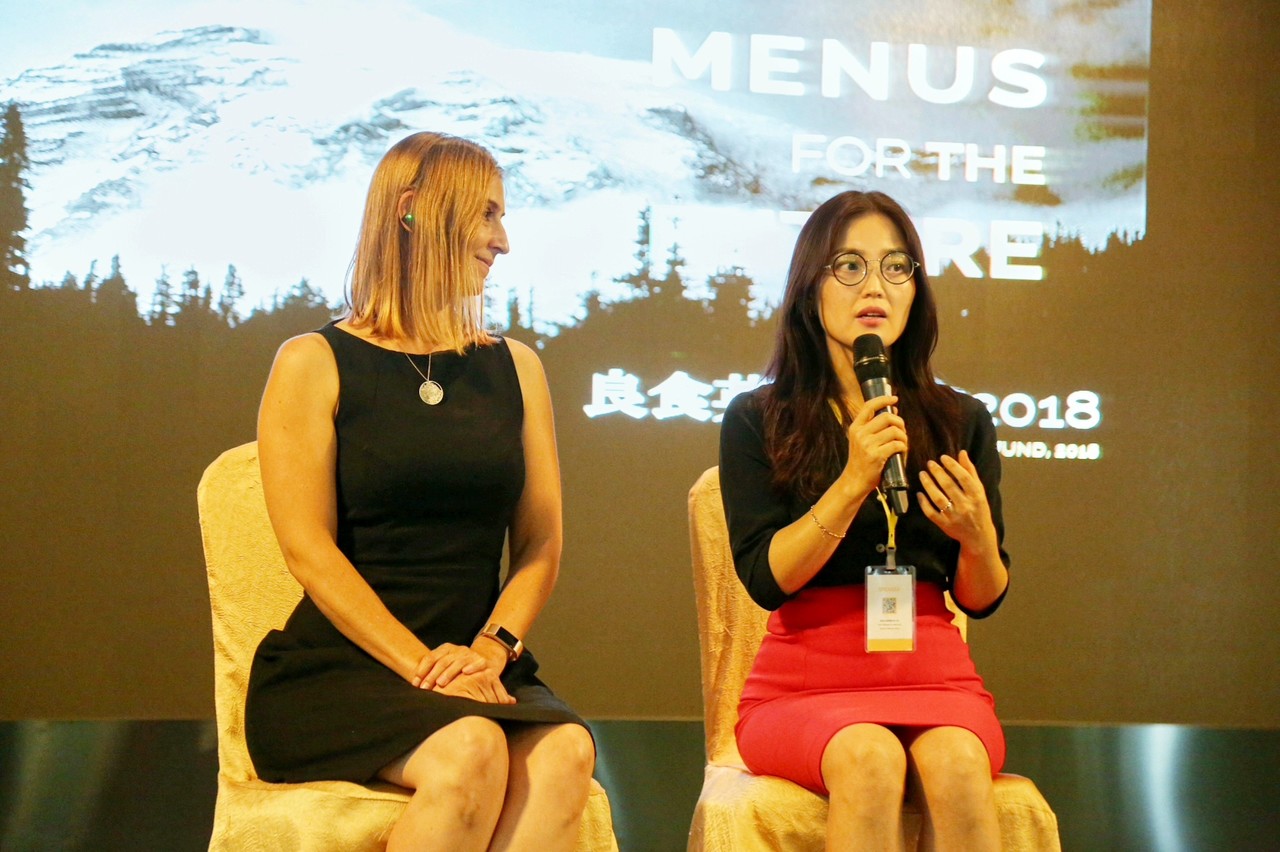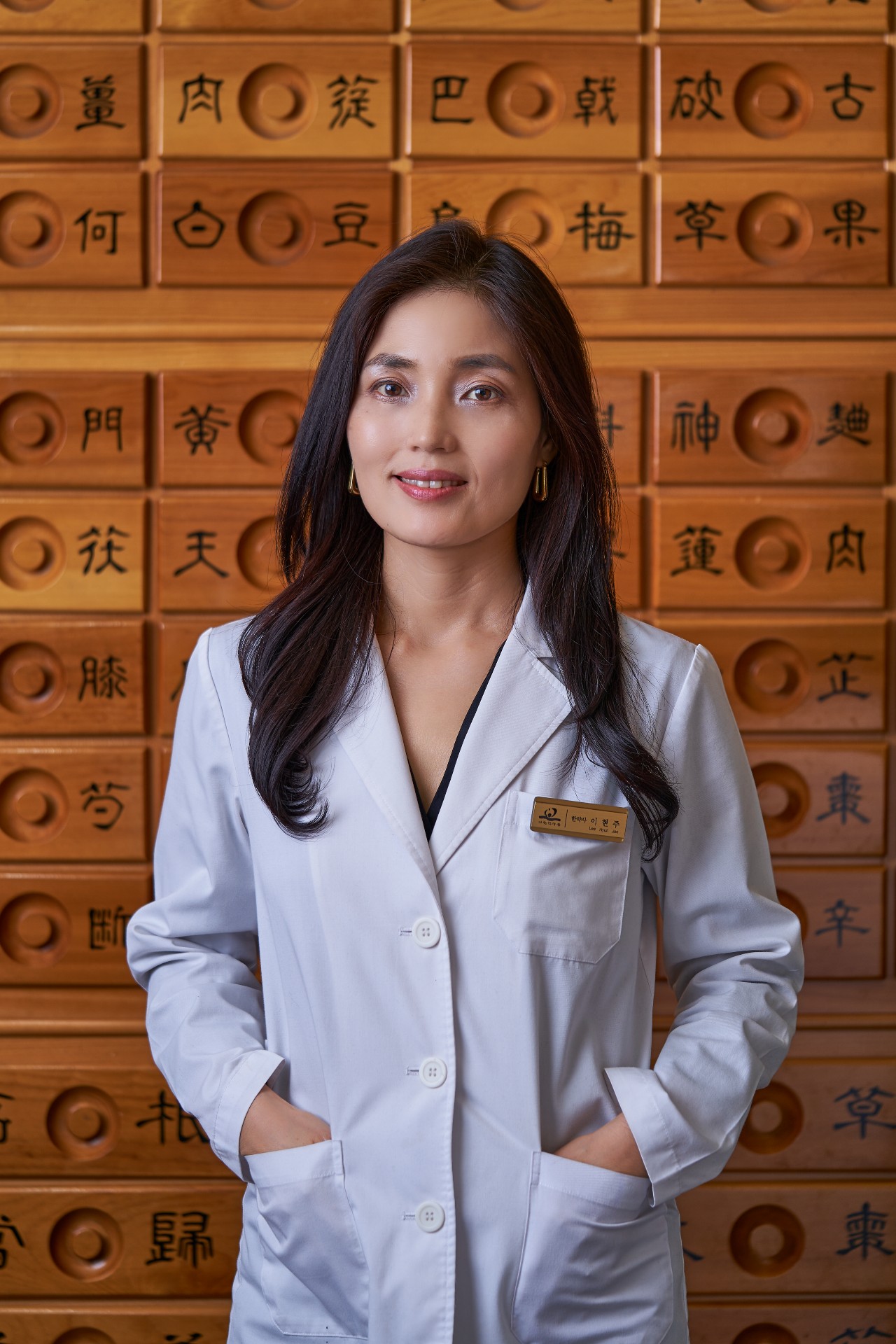
Have you ever heard of vegetarian oriental medicine? In Bupyeong-gu, Incheon City, there is Girin Oriental Pharmacy by Lee Hyun-joo, oriental medicine pharmacist, who pays attention to vegetarianism and the environment and manufactures herbal medicines only with vegetarian ingredients. Rather than simply prescribing medicine, she is touching the hearts of her patients by changing their eating habits and lifestyle based on her 19 years of vegetarian experience. Let's meet Lee Hyun-joo, who is currently a vegetarian and warm-hearted oriental medicine pharmacist who is working to create a better environment with CAH.
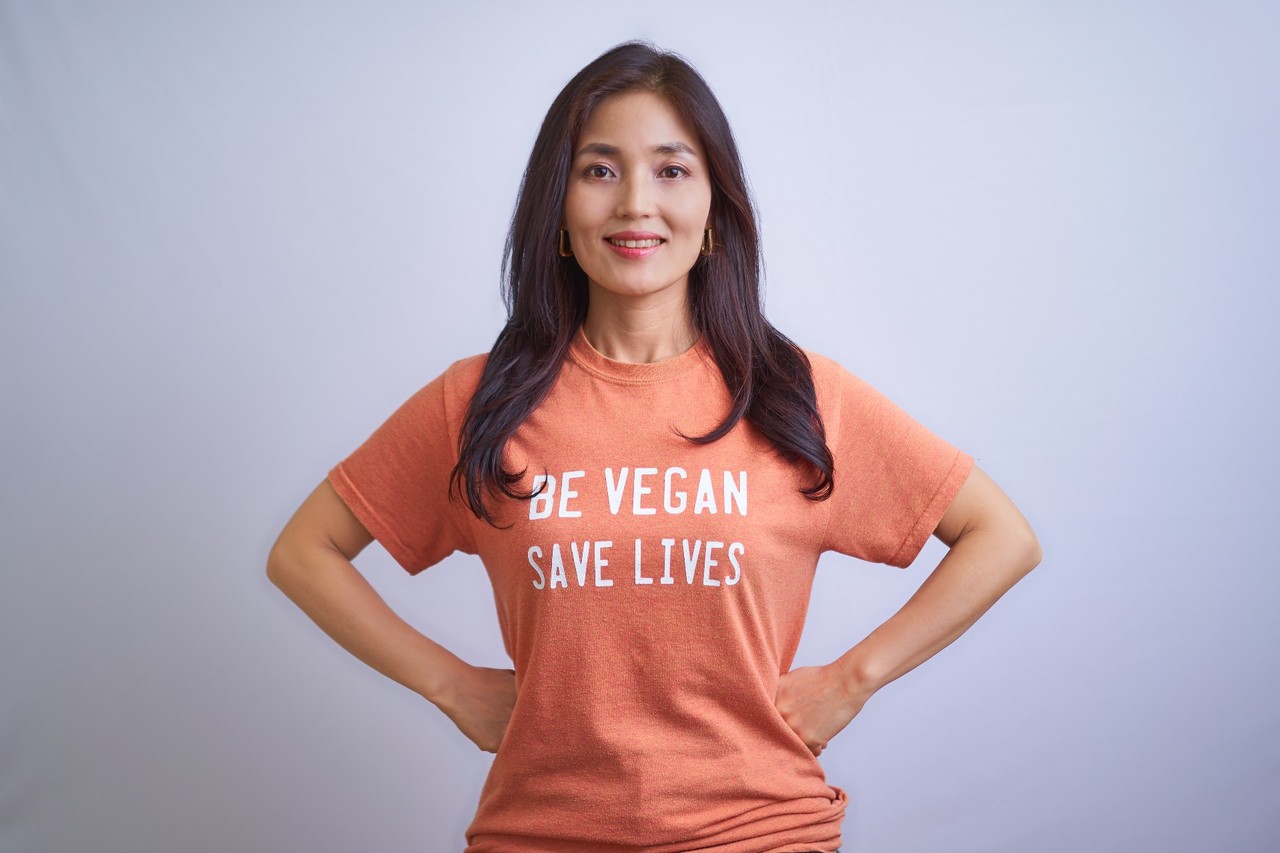
1. Please introduce yourself to Chung-Ang University students and readers of this article.
Hello, I am Lee Hyun-joo, who is currently running Girin Oriental Pharmacy after graduating from Chung-Ang University's Department of Journalism and Broadcasting. Nice to meet you.
2. After graduating from the Department of Journalism and Broadcasting[1] at Chung-Ang University, you entered the Department of Oriental Pharmacy at Woosuk University. It seems like an unusual career choice, and we are curious as to why you made this choice!
When I was in high school, I wanted to major in science. But one day, as part of school activities, I went to edit school papers, and I found the activity very interesting. So, when I entered university, I changed my major and entered the Department of Journalism and Broadcasting. But when I started attending classes, I felt a bit disappointed. Most of the university students were protesting and fighting at that time.[2] I grew up in a devout Christian family, so I wasn't used to that kind of protest culture. At that time, I got away from school and went back to farming, and I think that was the turning point. After returning to farming, I liked the beauty of nature, plants, and herbs that I grew myself. But even if I wanted to continue that life, it was difficult because I was not financially independent. So, the reason I chose the Department of Oriental Pharmacy was also very realistic. I applied to the Department of Oriental Pharmacy because I wanted to have a job where I could live in harmony with nature and work continuously.
3. What are some memorable classes, club activities, or other special experiences that you remember from Chung-Ang University?
As I said before, when I was in school, there were a lot of protests. The school classes themselves weren’t conducted normally. At that time, rather than making a small group with 6-7 classmates from the same class and doing grand activities, I made a newsletter and had a lot of time to get together and eat. We used to read together. To this day, I still meet them often to share about their recent lives, and we meet like childhood friends. I think it's really fun to have small gatherings like this in college, even if it's not a career-related club activity. I was able to meet a good relationship that has continued until now.
4. There are several stages to being vegetarian. Do you maintain a “vegan” diet, which is the stage in which you reject all animal-derived ingredients?
Yes, I am currently living a vegan life. At first, I think I tended to consume a certain amount of dairy products. After learning how dairy products are produced on factory farms and the negative impacts of dairy products on human health, I consciously stopped eating dairy products.
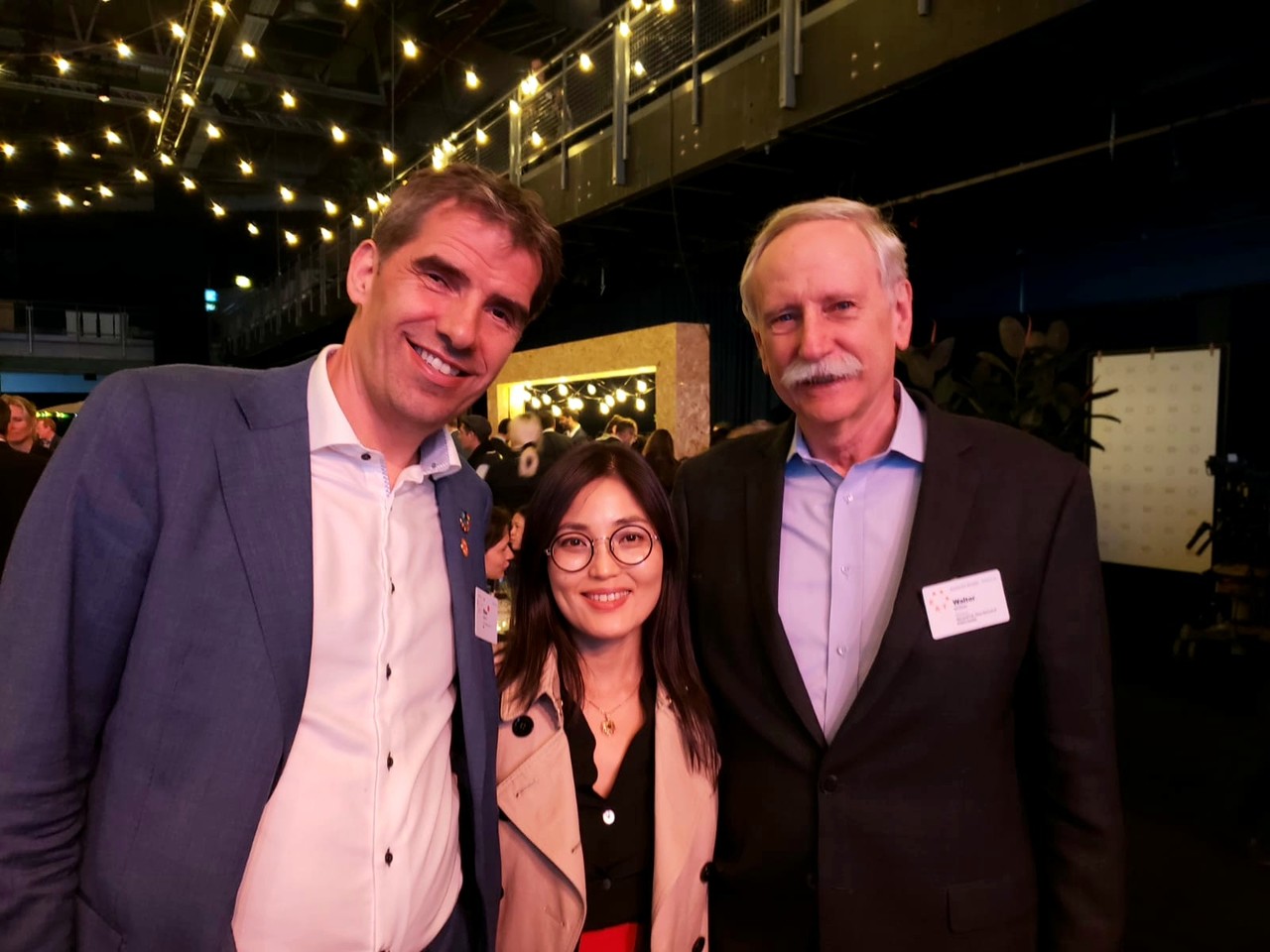
5. You have been maintaining a vegetarian diet for 19 years. Did you have any difficulties maintaining a vegetarian diet for a long time?
When I first became a vegetarian, it was often difficult to eat with my family. Now that veganism is widely known in society, everyone I meet knows and accepts my vegetarian life. But I think those things were difficult in the past. I realized that it was not enough just to change my diet - There was a need for us to change our entire culture to one that is more compassionate, sustainable and ethical. That realization made be an activist. To work hard at anything, especially if that path is not taken by others, it seems that you have to do it consistently and for a long time.
6. We confirmed that you started a vegetarian diet to calm your mind. We are curious to know how you feel about the relationship between vegetarianism and mental health.
I think it was the most troubled period when I was in my third year of college. By the time I graduated from the Department of Oriental Pharmacy, I wondered if I could do well in society. I was worried about whether I could have a stable career that could provide financial independence in a way that was consistent with my values. At that time, I was under a lot of stress. After 100 days of vegetarianism, my mind just calmed down and I felt more at peace. So, through that opportunity, I decided that I should stay a vegetarian, and I thought that this lifestyle really suits me. Also, there are various programs such as meditation courses at the School of Five Senses Therapy that I run. Through this program, many people have cured their depression and insomnia.
7. After completing the Lifestyle Medicine in Day-to-Day Practice and Culinary Medicine Chef Coaching course at Harvard University Medical School, you completed the Plant Based Nutrition Certificated Program course at Cornell University. What have you learned the most in these courses?
I have a lot of passion for studying. I am still learning. As my social position expands little by little, I feel that I need to keep fulfilling the needs that I come across, so I keep looking for new things to study. Both the Lifestyle Medicine in Day-to-Day Practice and Culinary Medicine Chef Coaching course at Harvard University Medical School are part of lifestyle medicine. Recently, lifestyle has become a field of medicine with the purpose that it is only possible to live a healthy life by changing our lifestyle. Through this process, I was able to communicate and have sessions with people in clinical professions who counsel and coach patients. Previously, I had focused on advising patients on their diet. The coaching process emphasized the importance of “bonding” with the patients. In a way, I think I learned a methodology that can provide detailed coaching on the lifestyle, and I am able to understand why people can't change their cooking and diet without human-to-human communication. I am of the view that doctors need to know exactly what their patients eat and should be able to prescribe specific recipes.
8. After majoring in oriental medicine, why did you open a “vegetarian” oriental medicine pharmacy instead of a typical oriental medicine pharmacy?
Being a vegetarian and making a career out of it are two different things. While I majored in oriental medicine, I studied how to use and prescribe expensive drugs including deer antlers. But when I went to prescribe these, I thought that this production process is cruel. So, I wanted to guide my patients on a path that does not prescribe these things and one where you can be healthy enough with only vegetarian diets and with plant-based prescriptions. That is why, when I introduce myself, I always explain vegetarian oriental medicine pharmacy.
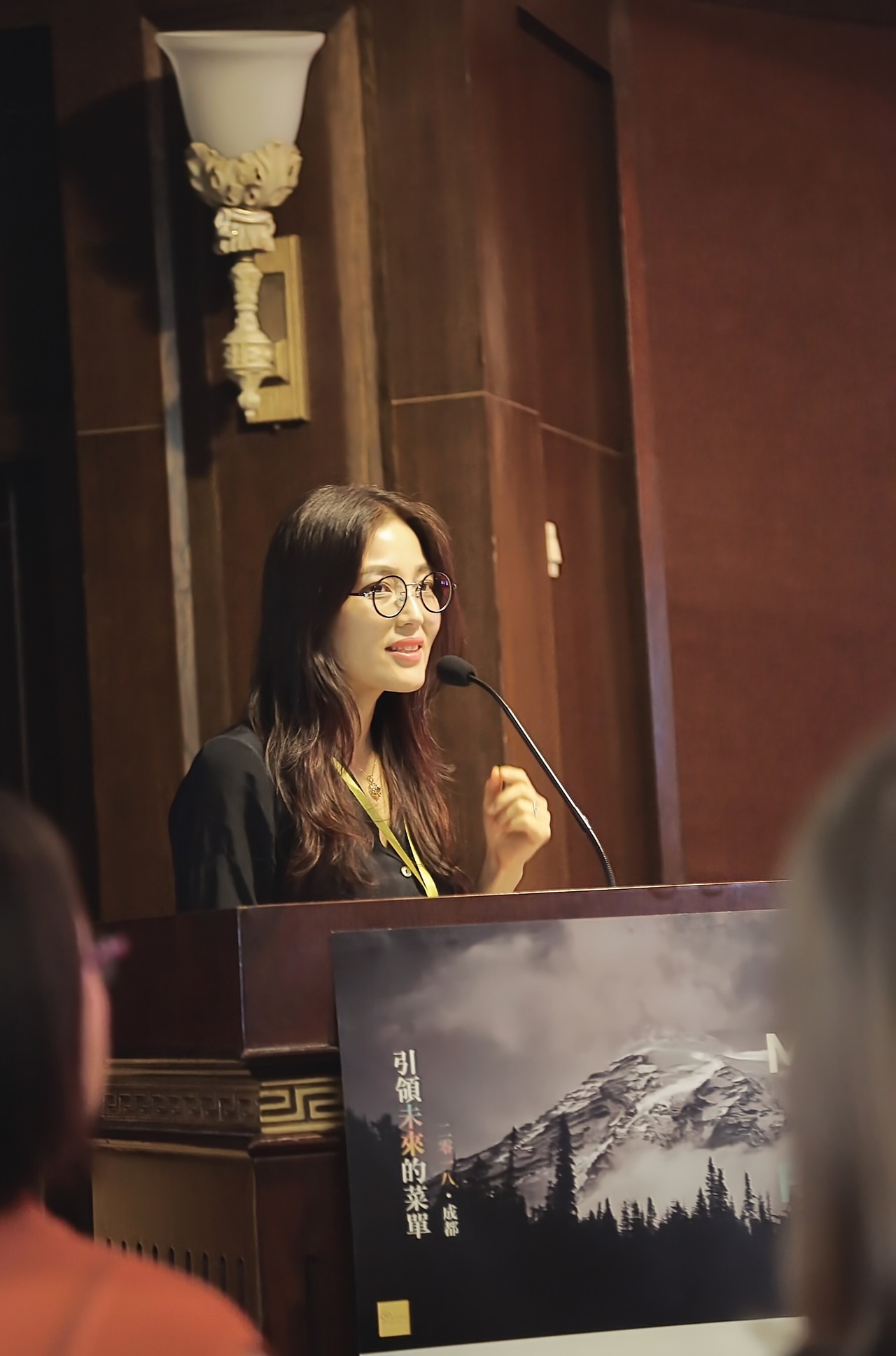
9. CAH wonders why the name of your oriental medicine pharmacy is “Girin.”
This “Girin” is an imaginary animal that appears in the mural of Cheonmachong[3]. This animal is a peaceful animal that does not harm people, and there are stories that this animal appears whenever the world changes. This name was given to me by a teacher some years ago. He told me that if I use this name, I can change the world through a vegetarian diet, so I took the name.
10. You are currently operating the only oriental medicine pharmacy in Korea that only prescribes vegan remedies, and it seems to have a uniqueness that cannot be found anywhere. Do you have any inconvenience in preparing herbal medicines using only plant-based products?
All medicines are divided into three types: animal, plant, and mineral. Many remedies contain a range of animal parts, but in fact, this is only one option. Herbal medicine is mainly based on plant-based medicines. Most medicines are plant-based, and it is not difficult to substitute out animal medicines. There is no problem at all because we are prescribing by referring to the classic books of oriental medicine that describe plant remedies. I think that was also the reason why I was able to run an oriental medicine pharmacy in the same place for 17 years.
11. In addition to the Girin oriental medicine pharmacy, you are running the “School of Five Senses Therapy” to learn self-healing of the mind. CAH wonders what the core value of the School of Five Senses Therapy is.
I've seen some people go back to their original habits and get sick again if they don’t fundamentally change their minds and habits. That's why I opened the School of Five Senses Therapy. There are three key values here. The first is “Human beings are part of nature and nature has healing power," the second is "let's heal ourselves first and then serve others and society," and the third is "be aware of the truth that everything is interconnected." In summary, it's a self-healing program designed to listen to your own stories.
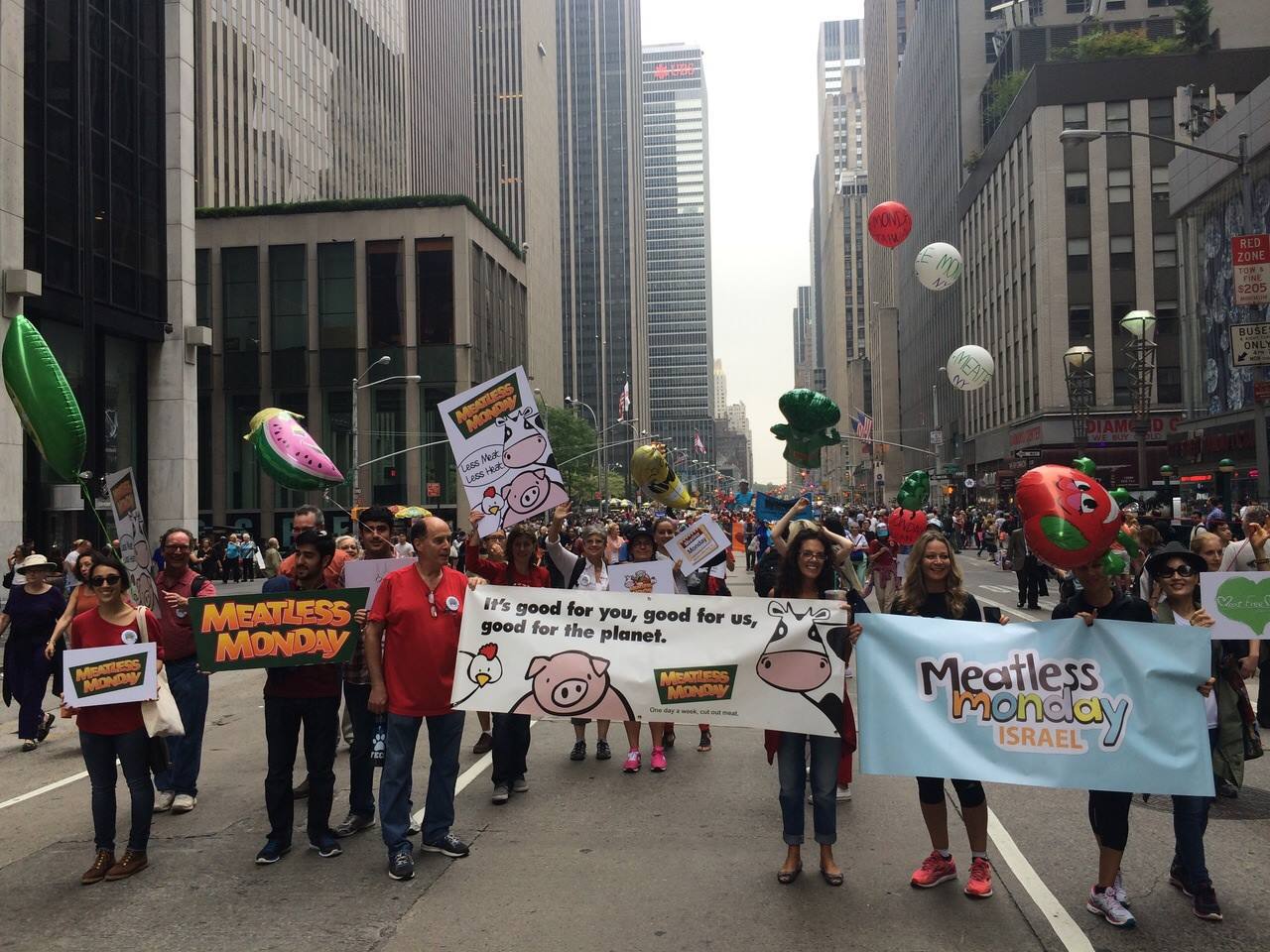
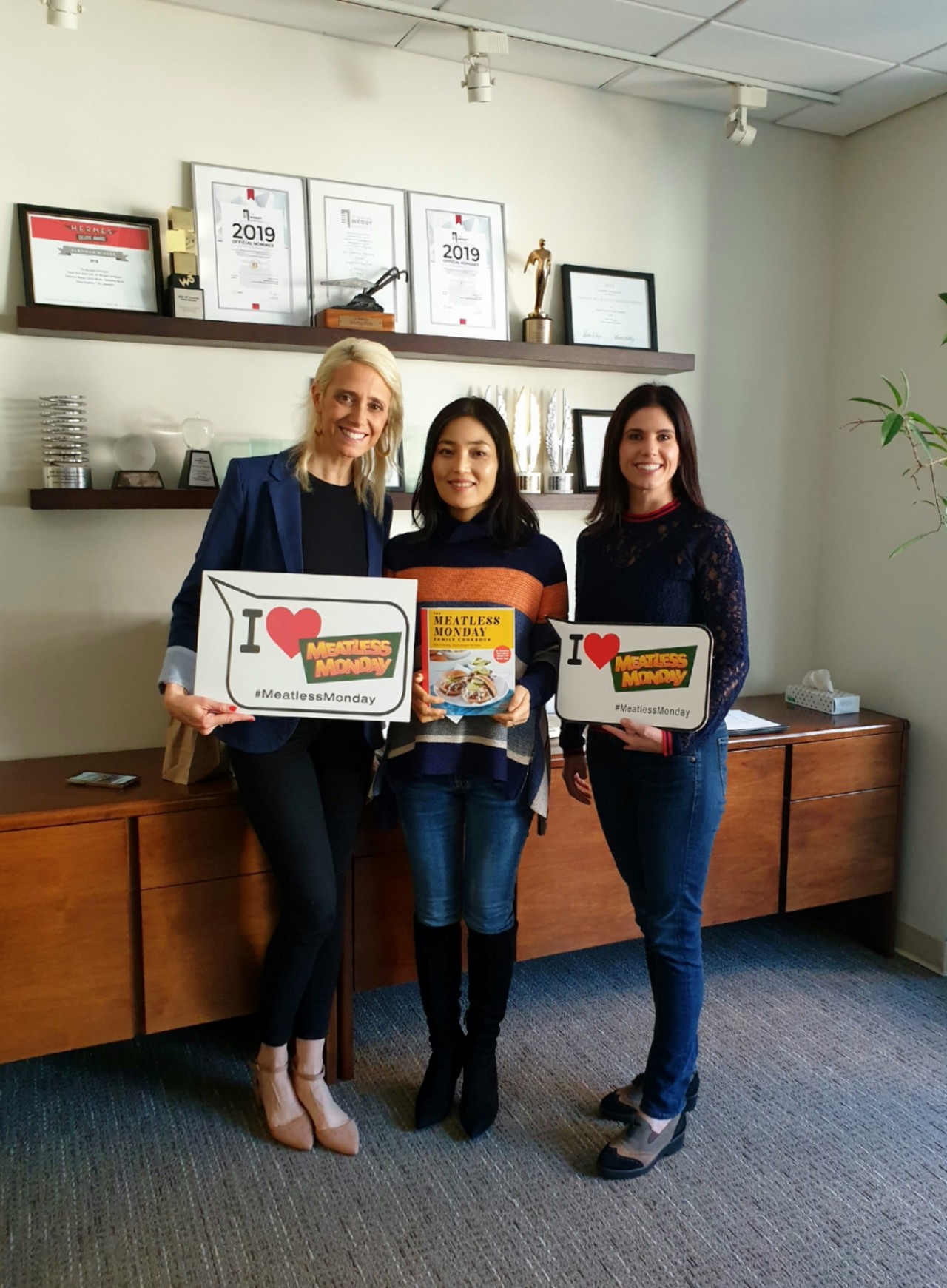
12. You are the representative of “Meat Free Monday Korea" where people have meatless meals once a week. Do you have any difficulties or memorable episodes?
In Korea, the term "vegetarian" itself was very unfamiliar. So I learned how to promote the "vegetarian culture" in our country through experiences in other countries where vegetarianism is well established. The most memorable activity was a proposal accepted at the environmental conference called ICLEI (Local Governments for Sustainability). I proposed offering meat-free dishes one day of the three days of the meeting, and it was received favorably. I was invited to the meeting and gave a dinner speech. The founder of the meeting came as soon as my speech was over, and he thanked me for having such a beautiful environmental meeting. Meat Free Monday is active not only in Korea but also in about 40 countries. When I go abroad, the vegan community is strong in solidarity and supports each other. There are difficulties being vegetarian, but I am so happy that there is a new field and network with new people that I would not have encountered if I had only studied oriental medicine.
13. You have included more than 100 different vegetarian recipes in your book What dish do you particularly want to recommend to college students?
I would recommend rainbow sandwiches and vegan tacos to those who want to eat simple dishes rather than special dishes. Rainbow sandwich is plain sandwich bread topped with peanut butter or strawberry jam, sliced with reddish or cucumbers, and sprinkled with the mint or dill. What's different is that it's an open-faced sandwich. It's simple and delicious, so I hope you try it.
14. What is the biggest problem with the eating habits or overall lifestyle of the current generation? CAU would appreciate it if you could tell CAH how to improve this!
I think the biggest problem is that people’s diet routine is broken a lot. The big problem is not to have a constant mealtime, but to eat irregularly while working, late at night, or while using the computer. So, regardless of whether it's vegetarian or not, I recommend eating at regular times.
15. How can college students living alone, away from their families, easily increase their nutritional density in their daily lives?
I recommend eating whole grains and making a colorful salad. Whole grains are very nutritious. Brown rice is the most familiar whole grain in Korea. In Korea, rice accounts for a high proportion, and vegetable intake is low. In the case of bibimbap, rice is 70%, vegetables and the garnish is 30%. I first heard of brown rice salad in a foreign country. Brown rice is topped with nuts, dressings with lemon instead of red pepper paste, and instead of white rice, there are colored vegetables and nuts. I think a salad with colorful vegetables and whole grains (brown rice, lentils, chickpeas, oats, quinoa) with abundant nutritional density is a very simple and nutritious menu. So I recommend students to eat a colorful salad with whole grains.
16. What are the criteria for choosing a better vegan menu or product? Also, if there is anything that these companies can refer to?
It would be nice if vegans could eat natural food using whole grains without seasoning. In the case of processed foods, I recommend making them without chemical additives. When I go abroad and go to a vegan restaurant, I can eat healthy foods like at my house. However, it's hard for us to eat 100% natural food unless we go to a temple since lots of vegan restaurants in Korea use processed foods. An unhealthy vegan is the enemy of a vegan, so I think it would be good to make dishes with whole grains and natural foods. And in the case of processed foods, there are already many organic, additive-free, naturally processed foods overseas. So if the company makes vegan cheese, I hope they make it 100% organic without any additives or coloring. The unit price will be a little more expensive, but in the future, healthy veganism will become a trend, so I think it will be more competitive to form a healthier vegan market in the future.
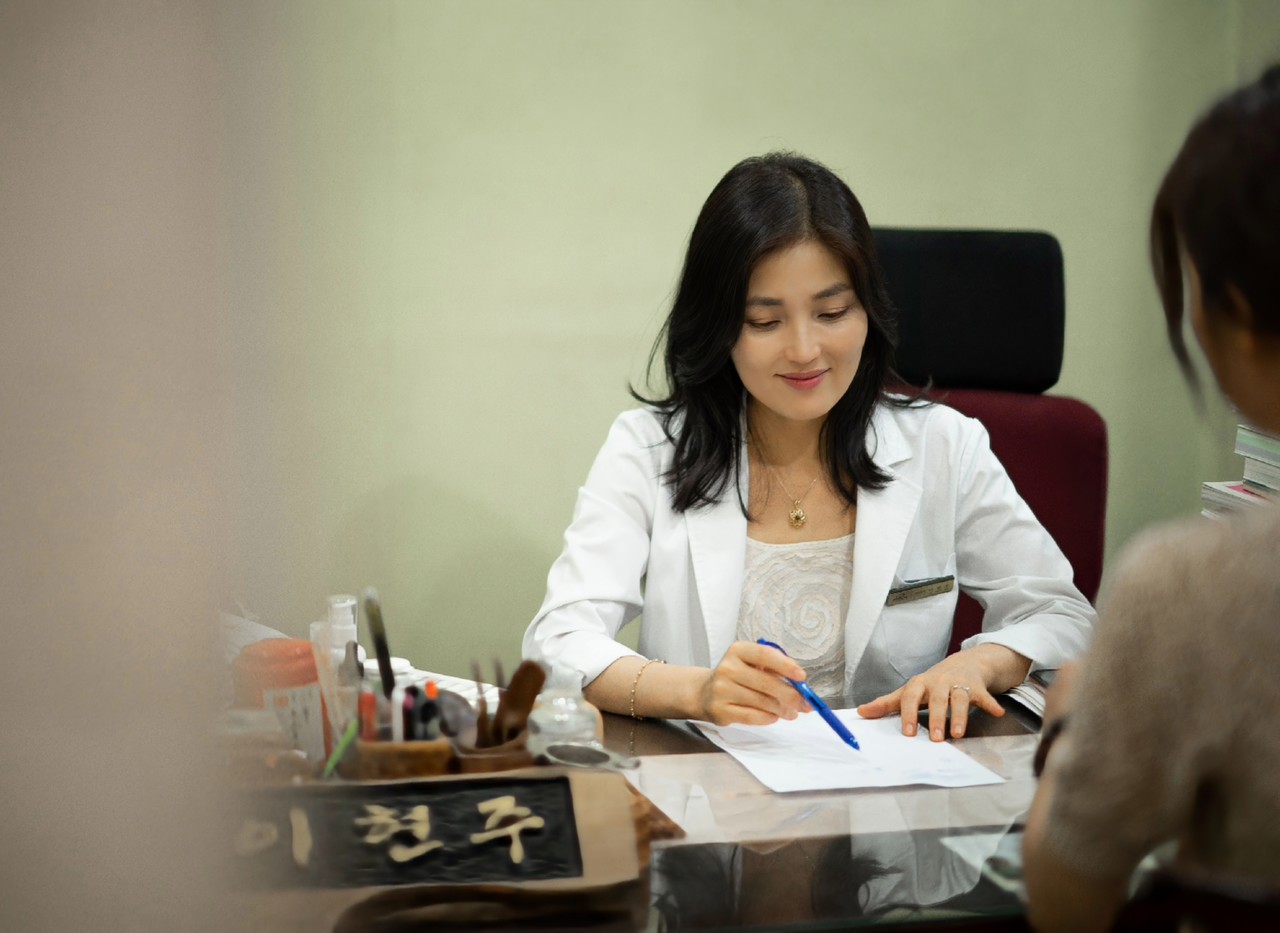
17. Is there a difference between the vegan culture in Korea, where vegan culture is just getting started, and the vegan style in other countries where vegan culture has been long established?
Korea is fast and competitive in everything. It's attractive and trendy, but it’s different from other countries where the vegetarian culture has been refined over a long period. I hope that many people who are aiming for a vegan diet enjoy vegan life with a more relaxed feeling. Overseas vegans get along well with non-vegan people, and they don't interfere with each other while eating. They just respect the people for being like that. It would be a good thing for us to aim for a perfect vegan life, but I think it is necessary to communicate well and live comfortably while maintaining a vegan life. My goal is not to make other people vegan, but to make it natural to be vegan. When I'm comfortable and natural first, I think there will be more people who want to do it like me. For that reason, we need to eliminate any prejudice against non-vegan people first. I should respect other people's choices and tastes, and just enjoy my choices without hiding them or being afraid.
18. Are there any precautions you would like to talk about for people who are practicing veganism?
I want to tell people they should not eat too many processed foods, to eat at more regular times, to not enjoy only ‘party’ foods, to be aware of the addiction to refined carbohydrates, and to not eat too many fries and sauces. People who want to be vegan but don't have time to cook usually rely on custom processed foods. However, even vegan foods made with processed ingredients are not very healthy. Even if you have a regular exercise program, you still need to be concerned about ensuring a healthy diet. Also, the important thing is not to think of veganism as an event. Many people think being a vegan is something special. However, being vegan is nothing special. It's no different from the traditional slow meals we've had when we cook at home. It is also important to be aware of, and avoid, high dependence on refined carbohydrates such as sugar, flour and bread.
19. What advice do you want to give to people in their 20s?
I don't think age is important anymore. As I got older, I realized age doesn’t make me mature. When I look at my son, I often wonder what I'm better at than him. I'm still lacking in many things. Old age does not necessarily bring wisdom! The advice I want to give to my juniors in their 20s is to just be like you are right now. Since humans are always lacking until they die, do not struggle to be perfect at your age. It's better to find more answers from the things you already have than to find deficits.
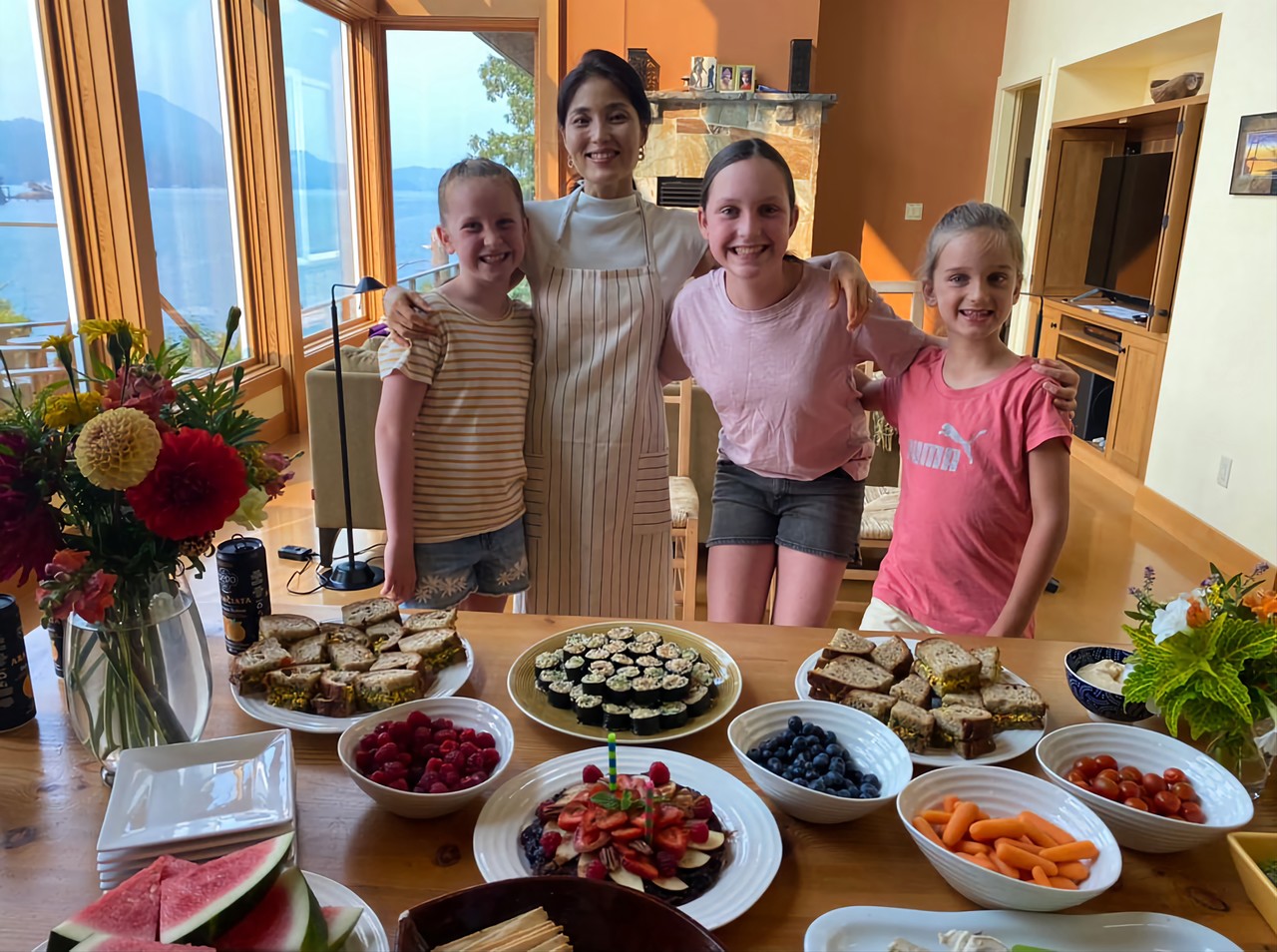
20. CAH wonders what Chung-Ang University is like to you.
CAU is the place where I went through my wandering life and the channel that connected me to society. The reason why I chose Chung-Ang University’s School of Media & Communication is that I liked the name Chung-Ang. I wanted to be at the center of the world, and I wanted to meet myself there. Chung-Ang University is like a launch pad that connected me to the center of the world. I feel like I became a rocket launched into the world from here.
Vegetarianism will continue to be an important keyword for the future of the Earth and mankind. Lee Hyun-joo is an oriental medicine pharmacist who has been a practicing vegetarian for nearly 20 years and has been giving generous advice and prescriptions for the health of many people. She also emphasizes the "fun of eating and living," leading people to a healthy vegetarian path easily and exotically so that anyone can take on the challenge of vegetarianism without burden. CAH concludes this interview by applauding her professionalism and passion for listening not only to her body but also her mental health.
[1] Currently, the Department of Journalism and Broadcasting' has been changed to the School of Media and Communication.
[2] The student protest in the early 1980s had a strong character of a struggle for democracy against the military regime. It played a significant role in political change in Korean society, having a strong political, social, and educational impact.
[3] A tomb from the Silla period during the Three Kingdoms period in Gyeongju-si, Gyeongsangbuk-do
